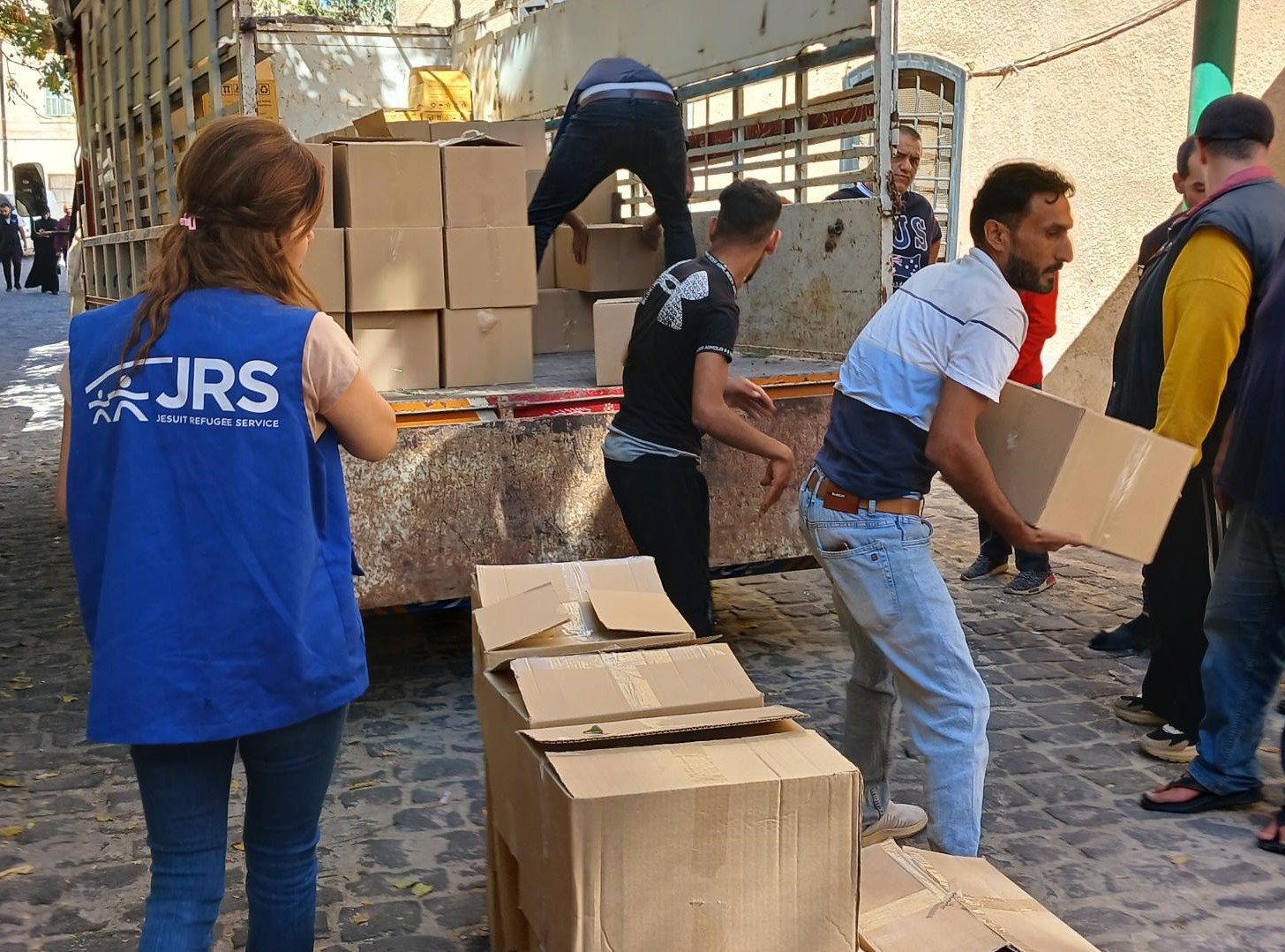A U.S. Department of State spokesperson declined to share how many approved and pending refugee cases were affected by the suspension. Just two of the 10 organizations designated by the U.S. to work with refugees told the Chronicle they had been expecting 7,170 approved refugees now barred from entry.
San Francisco Chronicle: Afghan journalist barred from U.S. under Trump refugee ban says he has ‘no plan left’
06 February 2025|San Francisco Chronicle, Ko Lyn Cheang, Reporter
Written and Published by The San Francisco Chronicle
On the morning of Jan. 21, in a dimly lit house in Islamabad, Pakistan, Abdul, a 30-year-old Afghan journalist, opened his laptop to see that President Donald Trump had indefinitely suspended refugee admissions.
Trump’s executive order, made on the grounds of national interests, has upended the lives of more than 10,000 people approved to leave war and disaster for the U.S., and ended a decades-old commitment to international law.
For the second time in his life, Abdul said he felt “the door of hope” slammed in his face. The first time was when the U.S. withdrew from Afghanistan in August 2021, leaving people like him — journalists, ethnic minorities and allies of the U.S. government — vulnerable to the resurgent Taliban. Abdul and his family had been undergoing their final medical screenings, the last stage in what had been a three-and-a-half-year vetting process.
“We feel betrayal,” said Abdul, whom the Chronicle is identifying by his first name because he has been targeted by the Taliban.
“Decimating the U.S. Refugee Admissions Program is not putting America first. It is weakening us as a country,” said Naomi Steinberg, vice president for U.S. policy and advocacy at resettlement organization HIAS, originally the Hebrew Immigrant Aid Society. “What refugee resettlement does is serve as a significant tool in our foreign policy. It helps our allies. … It makes us more secure.”
From its inception in 1980, the U.S. refugee admissions program has generally seen bipartisan support, with President George H.W. Bush admitting more than 100,000 people annually during his one term in office and even his son, President George W. Bush, underscoring the importance of helping Afghan women even as he significantly reduced admissions.
In his first term, Trump sent refugee admissions crashing to historic lows. Resettlement agencies saw their funding plunge as a result. It took four years to rebuild and meet the higher admission caps set by President Joe Biden, which resulted in just over 100,000 admissions in his final year.
Resettlement agencies received work stoppage orders on Jan. 24 from the State Department, which directed them to freeze federally-funded services such as arranging housing, health care, job aid and English classes, which the agencies are contracted to provide for 90 days after refugees’ arrival.
Last week, Secretary of State Marco Rubio issued a waiver exempting “life-saving humanitarian assistance” from Trump’s directive to suspend U.S. foreign aid. But resettlement agencies said they are still determining whether they’re covered.
“What the U.S. is saying is no support for refugees and forcibly displaced people anywhere,” Steinberg said. “The people who were forced to flee their homes are going to be left high and dry and used as political pawns.”
‘Darkest day’
Working as an investigative television journalist in Afghanistan, Abdul interviewed top Taliban leaders, many of whom now control the government.
Abdul said he asked pointed questions about human rights, women’s rights and religious minorities. Twice, officials walked out mid-interview.
“They said, ‘Your mind has become infidel, in these 20 years. Your mind is full of American views,’” Abdul recalled. “I said, ‘Human rights is not an American view. Going to school is a right. It has nothing to do with American views.’”
In February 2020, Trump administration officials brokered a deal with Taliban representatives in Doha, Qatar, agreeing to withdraw troops after 19 years. As the U.S. and NATO began exiting Afghanistan, Abdul’s news outlet was struck by three explosions, he said. Province after province was seized by the Taliban as they edged closer to Kabul. On Aug. 14, 2021, while Abdul was at work, the office alarm went off. The Taliban was nearing the city.
“It was total chaos,” Abdul said. “The darkest day for us.”
The next morning, Taliban forces breached the city. Afghan President Ashraf Ghani left the country. The Taliban was back in control. Abdul’s station broadcast news of the regime change with video shot on their phones.
The Taliban declared Abdul’s news outlet an enemy target. The Chronicle is not naming the outlet as it could identify him.
Abdul resolved to leave the country and burned his documents.
Carrying his mother, partially paralyzed from a stroke, Abdul and his sister headed for Kandahar, then across the Pakistan border. The rest of his family escaped Afghanistan later.
To conceal his Hazara identity and get past police checkpoints, Abdul donned a burqa. Hazara people, a Farsi-speaking ethnic minority whose observance of Islam differs from the Taliban’s, have long been subject to regional persecution, from a 19th century genocide to Taliban bomb attacks in recent years.
In Pakistan, Abdul scraped together cash working under-the-table jobs in delivery, construction and at a juice factory. The U.S. embassies in Kabul and Islamabad referred him to apply for refugee status. Reporters Without Borders sent him $1,500 Euros to help, he said.
A former editor, inquiring whether he was safe, got Abdul a job at a news organization operating in Pakistan.
In late 2023, Pakistan said it would start deporting the estimated 1.7 million undocumented Afghans in the country. During police raids in their neighborhood, Abdul slept in his office. His family hid in a forest behind their house for weeks. They waited to hear that they had passed their medical screenings and received approval to come to the U.S.
Then, Trump won.
“I have no plan left,” he said. “There is nothing. I’m just laughing to myself. This is the only way I have.”
He and his wife, a fellow Afghan refugee who also fled in 2021, move every few months to avoid detection. On the week Trump’s refugee ban took effect, Abdul was reporting on Pakistan’s crackdown on Afghan refugees, posting videos of women and children being loaded into trucks. Despite his hopelessness, Abdul said, “I am still reporting. I am still a journalist.”
Do refugees contribute to the U.S.?
The Trump administration has justified the refugee ban by arguing that “the United States lacks the ability to absorb large numbers of migrants and, in particular, refugees” without jeopardizing resources or security for U.S. citizens.
Donald Kerwin, a migration policy expert and vice president of advocacy, research and partnerships at the Washington D.C-based nonprofit Jesuit Refugee Services/USA, said the Trump administration misunderstands the way the U.S. refugee program works, which was designed to encourage self-sufficiency through early employment.
For example, refugees are given interest-free loans for the airfare to the U.S. and must pay them back within 42 months.
Kerwin authored a 2018 study examining refugee integration into American society. He found that the 1.1 million refugees who arrived in the United States between 1987 and 2016 had higher employment rates than that of the total population, at 64% to 60% and the same median personal income, $20,000, as the rest of the population.
“You basically have groups coming in with nothing, no income, just the clothes on their back,” Kerwin said, “that end up being highly successful based on the exertions and pure willpower and skills and gifts of these populations.”
In 2015, more than 181,000 refugee entrepreneurs in the U.S. generated $4.6 billion, according to the bipartisan research group, New American Economy. The U.S. Department of Health and Human Services found that refugees and asylees paid almost $124 billion in taxes from 2005 to 2019.
“This means that refugees and asylees contributed more revenue than they cost in expenditures to the government,” the 2024 report stated.
Given the record number of displaced people worldwide, more than 120 million as of May 2024, Kerwin said it is important that the U.S. set an example.
“I think it’s very important the U.S. step up and do what it has done historically, which is lead, because if it doesn’t the results will be quite disastrous,” he said.
Durana Saydee came to the U.S. with her parents and sister as Afghan refugees in 2000 from Pakistan.
“I have stories from my parents, who grew up in Afghanistan in the ‘70s, ‘80s, ‘90s, thinking about how there has not been a single day of peace since the ‘60s,” Saydee said.
Now 25, Saydee is a graduate sociology student at UCLA studying the forced migration of Afghan refugees and asylum seekers. Saydee said she thinks the U.S. ought to take responsibility for the exodus from Afghanistan following its 2021 withdrawal and decades-long war.
“It’s very unfortunate,” she said. “I hate that this is the reality.”
Reach Ko Lyn Cheang: KoLyn.Cheang@sfchronicle.com



